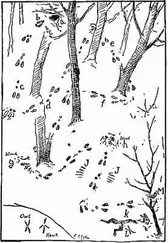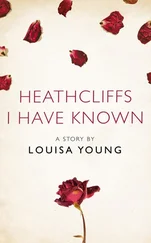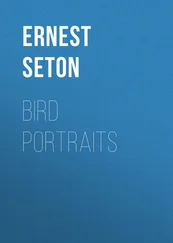Ernest Seton - Wild Animals I Have Known
Здесь есть возможность читать онлайн «Ernest Seton - Wild Animals I Have Known» весь текст электронной книги совершенно бесплатно (целиком полную версию без сокращений). В некоторых случаях можно слушать аудио, скачать через торрент в формате fb2 и присутствует краткое содержание. Год выпуска: 2001, Жанр: Природа и животные, на английском языке. Описание произведения, (предисловие) а так же отзывы посетителей доступны на портале библиотеки ЛибКат.
- Название:Wild Animals I Have Known
- Автор:
- Жанр:
- Год:2001
- ISBN:нет данных
- Рейтинг книги:5 / 5. Голосов: 1
-
Избранное:Добавить в избранное
- Отзывы:
-
Ваша оценка:
- 100
- 1
- 2
- 3
- 4
- 5
Wild Animals I Have Known: краткое содержание, описание и аннотация
Предлагаем к чтению аннотацию, описание, краткое содержание или предисловие (зависит от того, что написал сам автор книги «Wild Animals I Have Known»). Если вы не нашли необходимую информацию о книге — напишите в комментариях, мы постараемся отыскать её.
Wild Animals I Have Known — читать онлайн бесплатно полную книгу (весь текст) целиком
Ниже представлен текст книги, разбитый по страницам. Система сохранения места последней прочитанной страницы, позволяет с удобством читать онлайн бесплатно книгу «Wild Animals I Have Known», без необходимости каждый раз заново искать на чём Вы остановились. Поставьте закладку, и сможете в любой момент перейти на страницу, на которой закончили чтение.
Интервал:
Закладка:
Close by her side in the clover-field or the thicket he would sit and copy her when she wobbled her nose 'to keep her smeller clear,' and pull the bite from her mouth or taste her lips to make sure he was getting the same kind of fodder. Still copying her, he learned to comb his ears with his claws and to dress his coat and to bite the burrs out of his vest and socks. He learned, too, that nothing but clear dewdrops from the briers were fit for a rabbit to drink, as water which has once touched the earth must surely bear some taint. Thus he began the study of woodcraft, the oldest of all sciences.
As soon as Rag was big enough to go out alone, his mother taught him the signal code. Rabbits telegraph each other by thumping on the ground with their hind feet. Along the ground sound carries far; a thump that at six feet from the earth is not heard at twenty yards will, near the ground, be heard at least one hundred yards. Rabbits have very keen hearing, and so might hear this same thump at two hundred yards, and that would reach from end to end of Olifant's Swamp. A single thump means 'look out' or 'freeze.' A slow thump thump means 'come.' A fast thump thump means 'danger'; and a very fast thump thump thump means 'run for dear life.'
At another time, when the weather was fine and the bluejays were quarrelling among themselves, a sure sign that no dangerous foe was about, Rag began a new study. Molly, by flattening her ears, gave the sign to squat. Then she ran far away in the thicket and gave the thumping signal for 'come.' Rag set out at a run to the place but could not find Molly. He thumped, but got no reply. Setting carefully about his search he found her foot-scent and, following this strange guide, that the beasts all know so well and man does not know at all, he worked out the trail and found her where she was hidden. Thus he got his first lesson in trailing, and thus it was that the games of hide and seek they played became the schooling for the serious chase of which there was so much in his after life.
Before that first season of schooling was over he had learnt all the principal tricks by which a rabbit lives and in not a few problems showed himself a veritable genius.
He was an adept at 'tree,' 'dodge,' and 'squat,' he could play 'log-lump,' with 'wind' and 'baulk' with 'back-track' so well that he scarcely needed any other tricks. He had not yet tried it, but he knew just how to play 'barb-wire,' which is a new trick of the brilliant order; he had made a special study of 'sand,' which burns up all scent, and was deeply versed in 'change-off,' 'fence,' and 'double' as well as 'hole-up,' which is a trick requiring longer notice, and yet he never forgot that 'lie-low' is the beginning of all wisdom and 'brierbrush' the only trick that is always safe.
He was taught the signs by which to know all his foes and then the way to baffle them. For hawks, owls, foxes, hounds, curs, minks, weasels, cats, skunks, coons, and—men, each have a different plan of pursuit, and for each and all of these evils he was taught a remedy.
And for knowledge of the enemy's approach he learnt to depend first on himself and his mother, and then on the bluejay. "Never neglect the bluejay's warning," said Molly; "he is a mischief-maker, a marplot, and a thief all the time, but nothing escapes him. He wouldn't mind harming us, but he cannot, thanks to the briers, and his enemies are ours, so it is well to heed him. If the woodpecker cries a warning you can trust him, he is honest; but he is a fool beside the bluejay, and though the bluejay often tells lies for mischief you are safe to believe him when he brings ill news."
The barb-wire trick takes a deal of nerve and the best of legs. It was long before Rag ventured to play it, but as he came to his full powers it became one of his favorites.
"It's fine play for those who can do it," said Molly. "First you lead off your dog on a straightaway and warm him up a bit by nearly letting him catch you. Then keeping just one hop ahead, you lead him at a long slant full tilt into a breast-high barb-wire. I've seen many a dog and fox crippled, and one big hound killed outright this way. But I've also seen more than one rabbit lose his life in trying it."
Rag early learnt what some rabbits never learn at all, that 'hole-up' is not such a fine ruse as it seems; it may be the certain safety of a wise rabbit, but soon or late is a sure death-trap to a fool. A young rabbit always thinks of it first, an old rabbit never tries it till all others fail. It means escape from a man or dog, a fox or a bird of prey, but it means sudden death if the foe is a ferret, mink, skunk, or weasel.
There were but two ground-holes in the Swamp. One on the Sunning Bank, which was a dry sheltered knoll in the South-end. It was open and sloping to the sun, and here on fine days the Cottontails took their sun-baths. They stretched out among the fragrant pine needles and winter-green in odd cat-like positions, and turned slowly over as though roasting and wishing all sides well done. And they blinked and panted, and squirmed as if in dreadful pain; yet this was one of the keenest enjoyments they knew.
Just over the brow of the knoll was a large pine stump. Its grotesque roots wriggled out above the yellow sand-bank like dragons, and under their protecting claws a sulky old woodchuck had digged a den long ago.
He became more sour and ill-tempered as weeks went by, and one day waited to quarrel with Olifant's dog instead of going in so that Molly Cottontail was able to take possession of the den an hour later.
This, the pine-root hole, was afterward very coolly taken by a self-sufficient young skunk who with less valor might have enjoyed greater longevity, for he imagined—that even man with a gun would fly from him. Instead of keeping Molly from the den for good, therefore, his reign, like that of a certain Hebrew king, was over in seven days.
The other, the fern-hole, was in a fern thicket next the clover field. It was small and damp, and useless except as a last retreat. It also was the work of a woodchuck, a well-meaning friendly neighbor, but a harebrained youngster whose skin in the form of a whiplash was now developing higher horse-power in the Olifant working team.
"Simple justice," said the old man, "for that hide was raised on stolen feed that the team would a' turned into horse-power anyway."
The Cottontails were now sole owners of the holes, and did not go near them when they could help it, lest anything like a path should be made that might betray these last retreats to an enemy. There was also the hollow hickory, which, though nearly fallen, was still green, and had the great advantage of being open at both ends. This had long been the residence of one Lotor, a solitary old coon whose ostensible calling was frog-hunting, and who, like the monks of old, was supposed to abstain from all flesh food. But it was shrewdly suspected that he needed but a chance to indulge in a diet of rabbit. When at last one dark night he was killed while raiding Olifant's henhouse, Molly, so far from feeling a pang of regret, took possession of his cosy nest with a sense of unbounded relief.
IV
Bright August sunlight was flooding the Swamp in the morning. Everything seemed soaking in the warm radiance. A little brown swamp-sparrow was teetering on a long rush in the pond. Beneath him there were open spaces of dirty water that brought down a few scraps of the blue sky, and worked it and the yellow duck-weed into an exquisite mosaic, with a little wrong-side picture of the bird in the middle. On the bank behind was a great vigorous growth of golden green skunk-cabbage, that cast dense shadow over the brown swamp tussocks.
The eyes of the swamp-sparrow were not trained to take in the color glories, but he saw what we might have missed; that two of the numberless leafy brown bumps under the broad cabbage-leaves were furry living things, with noses that never ceased to move up and down, whatever else was still.
Читать дальшеИнтервал:
Закладка:
Похожие книги на «Wild Animals I Have Known»
Представляем Вашему вниманию похожие книги на «Wild Animals I Have Known» списком для выбора. Мы отобрали схожую по названию и смыслу литературу в надежде предоставить читателям больше вариантов отыскать новые, интересные, ещё непрочитанные произведения.
Обсуждение, отзывы о книге «Wild Animals I Have Known» и просто собственные мнения читателей. Оставьте ваши комментарии, напишите, что Вы думаете о произведении, его смысле или главных героях. Укажите что конкретно понравилось, а что нет, и почему Вы так считаете.





